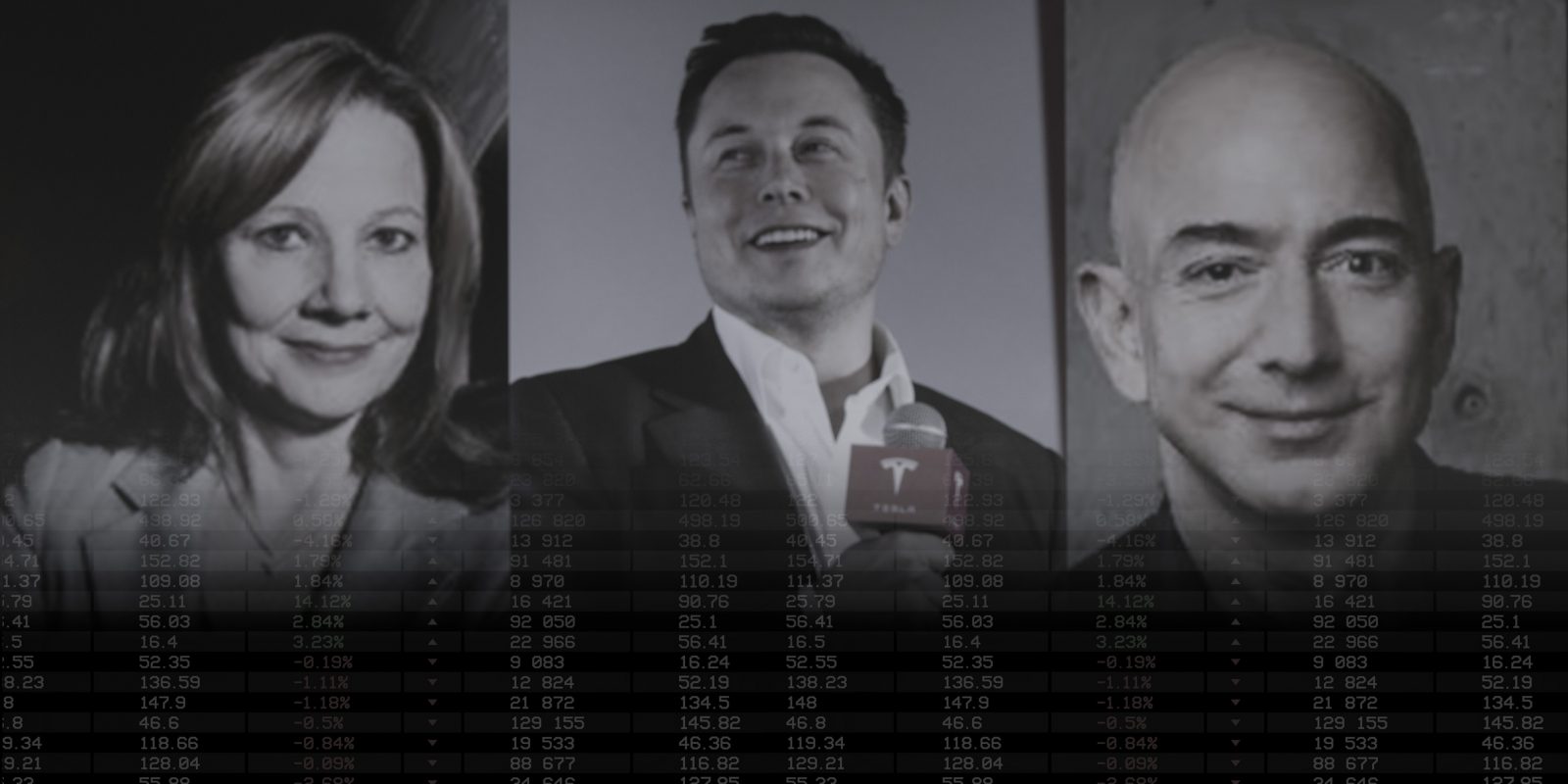
Extroverted CEOs May Make Investors Nervous
Joseph Harrison finds a leader’s personality traits may matter to stockholders.
Whether quiet and conscientious or extroverted and egotistical, a CEO’s personality influences investor confidence.

Joseph Harrison, assistant professor of strategy in the management and leadership department of TCU’s Neeley School of Business, looks at how a CEO’s personality influences investors and affects stock prices. Photo by Rodger Mallison
Joseph Harrison, assistant professor of strategy in the management and leadership department at TCU’s Neeley School of Business, theorizes that a CEO’s personality traits are linked to stock performance. He was lead author on a related study first featured in the Harvard Business Review and later published in the Academy of Management Journal.
“We’re not saying there’s a direct relationship between personality and stock price,” Harrison said. “All we’re saying is there’s a relationship between how the market perceives an executive’s ability to translate risk into value and actual shareholder returns.”
Harrison cited Elon Musk, the eccentric Tesla CEO who has spoken of nuking Mars. Market responses to Musk’s outlandish statements might not have anything to do with Tesla’s electric cars, but they could prompt investors to wonder if his actions create value for the company.
“I think it can be a deterrent to investors: ‘Hey, this guy’s a little unstable. Maybe we shouldn’t be investing right now,’ ” Harrison said.
Jon Maietta, founder of CEORater, agreed. “The key takeaway from Joseph’s study is that it is another data-supported effort that demonstrates that a given CEO’s personality affects company performance,” said Maietta, whose platform allows people to anonymously assess companies and their chief executives.
Harrison said traditional economic theory tends to ignore the human aspect of running companies.
He and his co-authors, Gary Thurgood of Utah State University, Steven Boivie of Texas A&M University and Michael Pfarrer of the University of Georgia, focused on the big five personality traits: Conscientiousness refers to the degree to which a leader exhibits dependability and cautiousness. Neuroticism includes emotional instability and impulsiveness. Extroversion means a person tends to be gregarious, ambitious and dominant. To a lesser extent, they evaluated a CEO’s openness to experience as well as agreeableness.
To quantify their ideas, the researchers enlisted psychology doctoral students to rate about 200 CEOs on the five traits by watching videos of the CEOs in interviews or other public exchanges using the International Personality Item Pool, a well-established survey instrument. The validated scores were used to train an algorithm to assess those traits based on the CEOs’ spoken language during quarterly earnings calls with stock analysts.
The algorithm analyzed more than 100,000 transcripts of CEOs speaking with equity analysts between 1993 and 2015.
The researchers then linked those personality assessments to shareholder returns.
“In financial markets, where every percentage point matters, the fact that any given trait on its own is associated with such a bump could be very meaningful for firms and investors.”
Joseph Harrison, Gary Thurgood, Steven Boivie and Michael Pfarrer, in their Harvard Business Review feature
On average, the firms of relatively more conscientious CEOs experienced 2.59 percent lower stock risk.
Publicly traded corporations of more neurotic (relative to more emotionally stable) CEOs had 2.04 percent higher stock risk on average, and this increasing risk did not yield any returns, while returns of emotionally stable CEOs were 2.68 percent greater.
And the more extroverted CEOs saw their firms experience 2.4 percent higher stock risk, with returns reduced 3.3 percent. At firms of their introverted counterparts, returns rose 5.43 percent when compared with companies led by those with extroverted traits.
“In financial markets, where every percentage point matters, the fact that any given trait on its own is associated with such a bump could be very meaningful for firms and investors,” Harrison and his co-authors wrote in the Harvard Business Review.
For an average firm in their sample — with a market capitalization of about $7 billion — a 2 percent to 5 percent change in return could mean $140 million to $350 million in value created or destroyed, they wrote.
Publicly traded companies should avoid selecting highly neurotic individuals as a CEO, and they should also pay attention to extroverted candidates, who tend to be promoted to higher positions more than introverted rivals, the Review article concluded.
Harrison’s findings suggest that introverts may manage risks better, which in turn inspires investor confidence.
Key to the study was the Open Language Chief Executive Personality Tool, which Harrison developed with Alexander Gedranovich, a Belarusian machine-learning expert and programmer. The test crunches an executive’s spoken language that is observable to market participants.
Harrison had long suspected that some type of quantifiable explanation was missing in the quest to evaluate corporate performance. By linking CEO personality traits to shareholder returns, he is shedding new light on factors that might be moving the invisible hand in the market economy.

Your comments are welcome
Comments
Related reading:
Features
Insights Into Introverts
Quiet workers, often overshadowed, bring balance to an office.
Research + Discovery
Greed and the Company’s Bottom Line
Study finds that too much greed and too much generosity can both hurt a company’s bottom line.
Research + Discovery
Why New Corporate Practices Stall
Corporate governance resists untested ideas, and Ryan Krause identified why these innovations fall by the wayside.